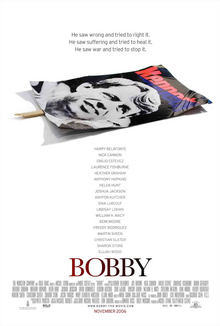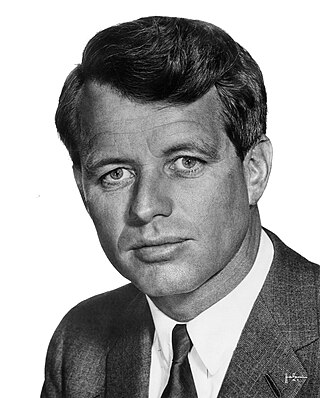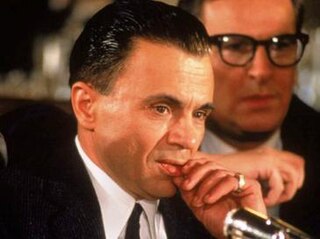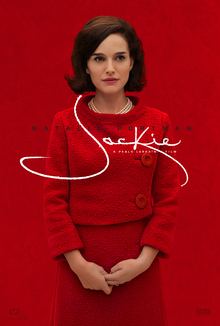Related Research Articles

James Riddle Hoffa was an American labor union leader who served as the president of the International Brotherhood of Teamsters (IBT) from 1957 until 1971.

Hoffa is a 1992 American biographical crime drama film directed by Danny DeVito and written by David Mamet, based on the life of Teamsters leader Jimmy Hoffa. Most of the story is told in flashbacks before ending with Hoffa's mysterious disappearance. The story makes no claim to be historically accurate, and in fact is largely fictional. Jack Nicholson plays Hoffa, and DeVito plays Robert Ciaro, an amalgamation of several Hoffa associates over the years. The film features John C. Reilly, Robert Prosky, Kevin Anderson, Armand Assante, and J. T. Walsh in supporting roles. The original music score was composed by David Newman. The film was distributed by 20th Century Fox and released on December 25, 1992. The film received predominantly mixed reviews and grossed just $29 million against its $35 million budget, with critics being polarized over Nicholson's performance and criticizing the film's story.

Ethel Kennedy is an American human rights advocate. She is the widow of U.S. senator Robert F. Kennedy, a sister-in-law of President John F. Kennedy, and the sixth child of George and Ann (Brannack) Skakel. Shortly after her husband's 1968 assassination, Kennedy founded the Robert F. Kennedy Center for Justice and Human Rights, a non-profit charity working to reach his goal of a just and peaceful world. In 2014, she was awarded the Presidential Medal of Freedom by President Barack Obama. She is the oldest living member of the Kennedy Family.

Bobby is a 2006 American drama film written and directed by Emilio Estevez, and starring an ensemble cast featuring Harry Belafonte, Joy Bryant, Nick Cannon, Laurence Fishburne, Spencer Garrett, Helen Hunt, Joshua Jackson, Anthony Hopkins, Ashton Kutcher, Shia LaBeouf, Lindsay Lohan, William H. Macy, Demi Moore, Martin Sheen, Christian Slater, Sharon Stone, Freddy Rodriguez, Heather Graham, Elijah Wood, and Estevez. The screenplay is a fictionalized account of the hours leading up to the June 5, 1968, shooting of U.S. Senator Robert F. Kennedy in the kitchen of the Ambassador Hotel in Los Angeles following his win of the 1968 Democratic presidential primary in California.
The Underworld USA Trilogy is the collective name given to three novels by American crime author James Ellroy: American Tabloid (1995), The Cold Six Thousand (2001), and Blood's a Rover (2009).

RFK is a 2002 American historical drama television film directed by Robert Dornhelm and written by Hank Steinberg. The film stars Linus Roache as Robert F. Kennedy. David Paymer, Martin Donovan, Jacob Vargas, Marnie McPhail, Sergio Di Zio, Sean Sullivan, Ving Rhames and James Cromwell also star. It premiered on the FX Network on August 25, 2002.
The Robert F. Kennedy Human Rights Award was created in 1984 by the Robert F. Kennedy Memorial, now known as Robert F. Kennedy Human Rights, to honor individuals around the world who have shown great courage and have made a significant contribution to human rights in their country.

The Robert F. Kennedy presidential campaign began on March 16, 1968, when Robert Francis Kennedy, a United States Senator from New York, mounted an unlikely challenge to incumbent Democratic United States President Lyndon B. Johnson. Following an upset in the New Hampshire primary, Johnson announced on March 31 that he would not seek re-election. Kennedy still faced two rival candidates for the Democratic Party's presidential nomination: the leading challenger United States Senator Eugene McCarthy and Vice President Hubert Humphrey. Humphrey had entered the race after Johnson's withdrawal, but Kennedy and McCarthy remained the main challengers to the policies of the Johnson administration. During the spring of 1968, Kennedy led a leading campaign in presidential primary elections throughout the United States. Kennedy's campaign was especially active in Indiana, Nebraska, Oregon, South Dakota, California, and Washington, D.C. Kennedy's campaign ended on June 6, 1968 when he died following his assassination after declaring victory in the June 4, 1968 California Primary. He was assassinated at the Ambassador Hotel in Los Angeles, following his victory speech in the California primary and died on June 6, 1968 at Good Samaratin Hospital in Los Angeles. Had Kennedy been elected President in November of 1968, he would have been the first brother of a U.S. President to win the presidency himself.

On April 4, 1968, United States Senator Robert F. Kennedy of New York delivered an improvised speech several hours after the assassination of Martin Luther King Jr. Kennedy, who was campaigning to earn the Democratic Party's presidential nomination, made his remarks while in Indianapolis, Indiana, after speaking at two Indiana universities earlier in the day. Before boarding a plane to attend campaign rallies in Indianapolis, he learned that King had been shot in Memphis, Tennessee. Upon arrival, Kennedy was informed that King had died. His own brother, John Fitzgerald Kennedy had been assassinated on November 22, 1963. Robert F. Kennedy would be also assassinated two months after this speech, while campaigning for presidential nomination at the Ambassador Hotel in Los Angeles, California.

RFK Must Die: The Assassination of Bobby Kennedy is a 2007 investigative documentary by Irish writer and filmmaker Shane O'Sullivan. The film expands on O'Sullivan's earlier reports for BBC Newsnight and The Guardian and explores conspiracy theories related to the assassination of United States Senator Robert F. Kennedy on 5 June 1968. The title comes from a page of "free writing" found in assassin Sirhan Sirhan's notebook after the shooting upon which Sirhan had written "R.F.K. must die - RFK must be killed Robert F. Kennedy must be assassinated... before June 5 '68."

On June 5, 1968, Robert F. Kennedy was shot by Sirhan Sirhan at the Ambassador Hotel in Los Angeles, California and pronounced dead the following day.

Sirhan Bishara Sirhan is a Palestinian-Jordanian man who was convicted of murdering American politician Robert F. Kennedy, the younger brother of American president John F. Kennedy. On June 5, 1968, Sirhan shot and mortally wounded Robert shortly after 12 a.m. at the Ambassador Hotel in Los Angeles; Robert died the next day at Good Samaritan Hospital. The circumstances surrounding the attack, which took place five years after John's assassination, have led to numerous conspiracy theories.

Robert Francis Kennedy, also known by his initials RFK and by the nickname Bobby, was an American politician and lawyer. He served as the 64th United States attorney general from January 1961 to September 1964, and as a U.S. senator from New York from January 1965 until his assassination in June 1968, when he was running for the Democratic presidential nomination. Like his brothers John F. Kennedy and Ted Kennedy, he was a prominent member of the Democratic Party and is an icon of modern American liberalism.

"On the Mindless Menace of Violence" is a speech given by United States Senator and presidential candidate Robert F. Kennedy. He delivered it in front of the City Club of Cleveland at the Sheraton-Cleveland Hotel on April 5, 1968, the day after the assassination of Martin Luther King Jr. With the speech, Kennedy sought to counter the King-related riots and disorder emerging in various cities, and address what he viewed as the growing problem of violence in American society.
Robert F. Kennedy Human Rights is an American 501(c)(3) nonprofit human rights advocacy organization. It was named after United States Senator Robert F. Kennedy in 1968, a few months after his assassination. The organization of leading attorneys, advocates, entrepreneurs and writers is dedicated to a more just and peaceful world, working alongside local activists to ensure lasting positive change in governments and corporations. It also promotes human rights advocacy through its RFK Human Rights Award, and supports investigative journalists and authors through the RFK Book and Journalism Awards. It is based in New York and Washington, D.C.

Blood Feud is a 1983 American two-part, four-hour made-for-television crime drama film centering on the conflict between Jimmy Hoffa and Robert F. Kennedy in an 11-year span from 1957 until Kennedy's assassination in 1968. The 210-minute film was directed by Mike Newell and written by Robert Boris. It stars Robert Blake as Hoffa and Cotter Smith as Kennedy with Danny Aiello and Brian Dennehy in supporting roles as union associates of Hoffa's.
Ethel is a 2012 documentary that premiered at the Sundance Film Festival. The subject of the documentary is Ethel Kennedy, the widow of Robert F. Kennedy. Ethel was scheduled to premiere on HBO later in 2012.
Walter James Sheridan was an investigator for various agencies of the US government. He is best known for his role in the prosecution of Jimmy Hoffa, on which subject he published a book in 1972.

Jackie is a 2016 biographical drama film directed by Pablo Larraín and written by Noah Oppenheim. The film stars Natalie Portman as Jacqueline Kennedy. Peter Sarsgaard, Greta Gerwig, Billy Crudup, and John Hurt also star; it was Hurt's final film released in his lifetime before his death in January 2017. The film follows Kennedy in the days when she was First Lady in the White House and her life immediately following the assassination of her husband, United States President John F. Kennedy, in 1963. It is partly based on Theodore H. White's Life magazine interview with the widow at Hyannis Port, Massachusetts, in November 1963.

Paul Schrade was an American trade union activist. While vice president of the United Auto Workers, he was shot in the head during the 1968 assassination of Robert F. Kennedy. Schrade believed that while he was shot by Sirhan Sirhan, Kennedy was shot by a second gunman. Paul Schrade is featured in the Netflix documentary Bobby Kennedy for President. The Paul Schrade Library at the Los Angeles High School of the Arts was named after him.
References
- ↑ "Jingle Bells". phfilms.com. Archived from the original on August 19, 2016. Retrieved August 19, 2016.
- ↑ "Hickory Hill". phfilms.com. Archived from the original on August 19, 2016. Retrieved August 19, 2016.
- ↑ "The Unfinished Journey of Robert F. Kennedy (1970)". David L. Wolper. Archived from the original on August 19, 2016. Retrieved August 19, 2016.
- ↑ "The Second Gun: Who Really Killed Robert Kennedy?". freedocumentaries.org. Retrieved 2019-01-26.
- ↑ "Ripple of Hope". rippleofhopemovie.com. Retrieved May 4, 2012.
- ↑ Shore, Larry. "RFK in the Land of Apartheid: A Ripple of Hope". rfksafilm.org. Retrieved April 7, 2011.
- ↑ "A Kennedy home movie: Ethel Kennedy and family remember". The Boston Globe . October 18, 2012.
- ↑ Stuever, Hank (October 11, 2012). "HBO's 'Ethel': A Kennedy daughter, born late, reaches into the vault of memories". The Washington Post.
- ↑ Gilbert, Sophie (2018-04-30). "'Bobby Kennedy for President' Captures an Awkward Icon". The Atlantic. Retrieved 2018-12-06.
- ↑ Teachout, Terry (October 15, 2012). ""The Missiles of October"". The Wall Street Journal. Dow Jones & Company, Inc. Archived from the original on August 19, 2016. Retrieved August 19, 2016.
- ↑ "Best and worst portrayals of JFK". Daily Journal. November 22, 2013.
- ↑ "Robert Kennedy & His Times (mini-series) - Sony's Formal Press Release for Their 2-DVD Set". TVShows on dvd. Archived from the original on August 19, 2016. Retrieved August 19, 2016.
- ↑ Johnson, Malcolm (December 25, 1992). "Nicholson Performance Strong, But Devito Robs 'Hoffa' Of Drama". Hartford Courant.
- ↑ Thompson, Gary (December 24, 1992). "Solidarity With 'Hoffa' Teamster Boss Portrayed As Working-class Tragic Hero". philly.com.
- ↑ "Review: 'The Rat Pack'". Variety. Archived from the original on August 19, 2016. Retrieved August 19, 2016.
- ↑ "Matt Damon set to play Bobby Kennedy in new RFK biopic - report". New York Daily News. February 24, 2010.
- ↑ "About 21st Street Films". 21st Street Films. Archived from the original on August 19, 2016. Retrieved August 19, 2016.
- ↑ "Barry Pepper Says 'Kennedys' Emmy Nods a 'Wonderful Validation'". wsj.com. July 15, 2011.
- ↑ "9 actors who have played John F. Kennedy". theweek.com. November 8, 2013.
- ↑ Fleming, Mike (March 8, 2011). "Jeffrey Donovan Playing RFK in 'J. Edgar'". Deadline Hollywood . Retrieved March 8, 2011.
- ↑ "Peter Sarsgaard to Play Robert Kennedy Opposite Natalie Portman in 'Jackie' (EXCLUSIVE)". Variety.com. October 28, 2015.
- ↑ Smith, Nigel M. (October 28, 2015). "Peter Sarsgaard set to play Robert F Kennedy opposite Natalie Portman". The Guardian.
- ↑ "'The Irishman' another hit for DeNiro, Pacino, Scorsese". bostonherald.com. November 15, 2019.
- ↑ Zentgraf, Nico. "The Complete Works of the Rolling Stones 1962–2008". nzentgraf.de. Retrieved February 23, 2008.
- ↑ Jagger/Richards (June 20, 2004). "Sympathy for the Devil". RollingStones.com. Archived from the original on September 30, 2007. Retrieved March 1, 2008.
- ↑ Margolick, David (2018-06-05). "Opinion | How Robert Kennedy Inspired 'Abraham, Martin and John'". The New York Times. ISSN 0362-4331 . Retrieved 2018-12-06.
- ↑ Farley, Christopher John (October 18, 2012). "Taylor Swift's Kennedy Inspiration". The Wall Street Journal . Retrieved April 23, 2022.
- ↑ Ellroy, James (1995). American Tabloid . Alfred A. Knopf, Inc. ISBN 0-679-40391-4.
- ↑ Ellroy, James (2001). The Cold Six Thousand . Alfred A. Knopf, Inc. ISBN 0-679-40392-2.
- ↑ "The Last Pilgrim by Roy Smiles at the White Bear 28 Sep". londontheatre.co.uk. September 5, 2010.
- ↑ "Roy Smiles". Red Admiral Records LLP.
- ↑ Schlesinger, Arthur M. Jr. (1978). "Robert Kennedy and His Times" .
{{cite journal}}: Cite journal requires|journal=(help)
